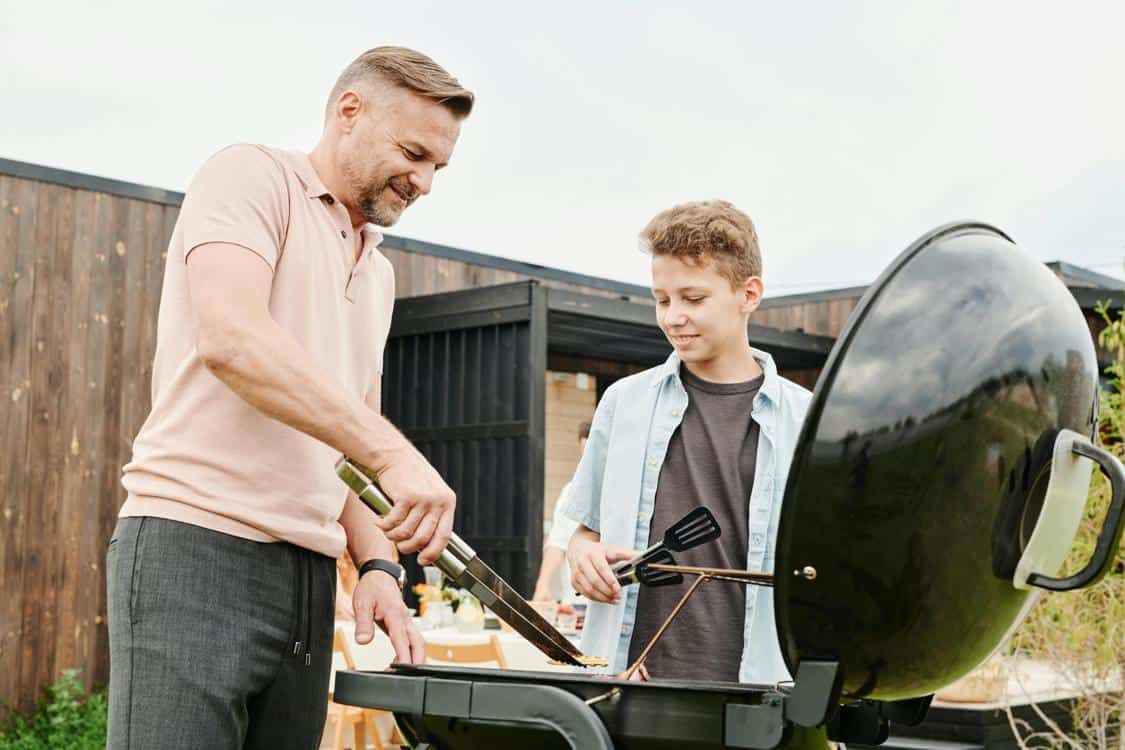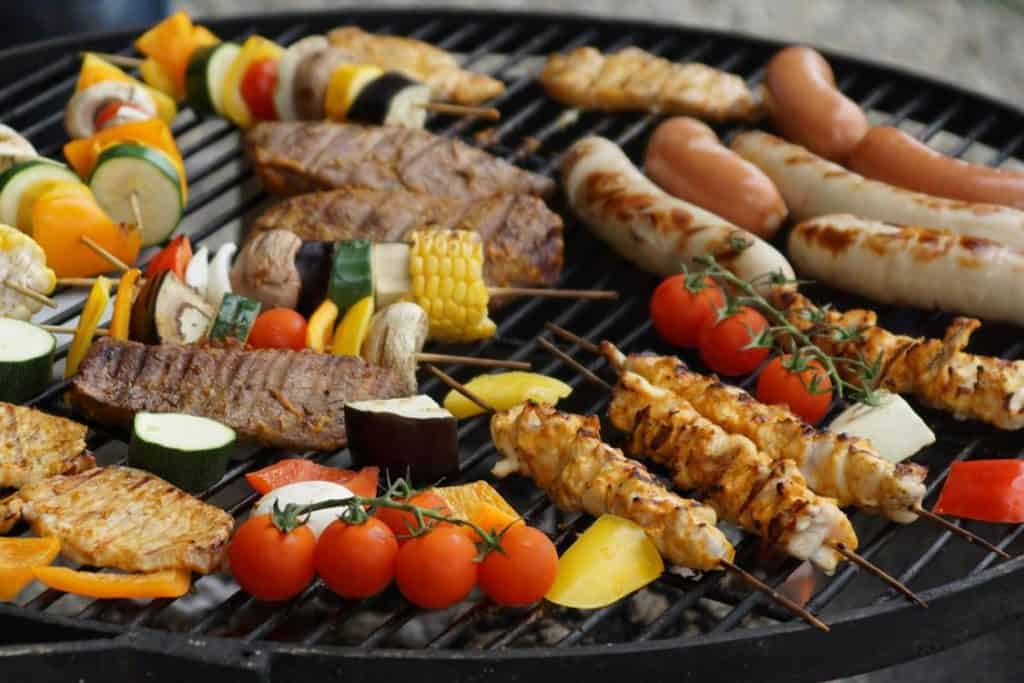It should come as no surprise that a neglected grill is full of germs and bacteria. Over multiple cookouts, food and grease buildup can produce dangerous microbes that can cause illness in vulnerable groups like pregnant women, children, or immunocompromised individuals. Not to mention, a poorly cleaned grill produces harmful toxins that can aggravate respiratory issues.
Increased Risk of Bacteria Infections
As the weather warms up, many homeowners start firing up their grills to enjoy a backyard barbecue. However, if you’ve left your grill to collect grime and gunk over the winter, it may harbor harmful bacteria that can lead to illness when you use it. The good news is that a neglected grill can be restored to a safe cooking surface by performing some simple cleaning and maintenance tasks before using it again, removing all grates, burners, and drip trays.
While bacterial contamination can occur anywhere, the risk of bacterial infections from contaminated meats increases when a grill isn’t properly cleaned before and after each use. This occurs because traces of meat, juices, and fat left on a grill over multiple cookouts slowly decay, enabling bacteria like Salmonella or E. coli to thrive on the surface of the grill and latch onto newly prepared foods. When ingested, these bacteria can cause food poisoning-like symptoms ranging from mild intestinal discomfort to dehydration and in severe cases even death.
According to the USDA, different types of meat require distinct internal temperatures for safe consumption. For instance, poultry requires an internal temperature of 165 degrees Fahrenheit while steaks and roasts must reach 145 degrees. These temperatures can only be achieved if the grill is heated to and maintained at these temperatures for a sufficient amount of time. Unfortunately, a lot of people make mistakes when handling their grills, says University of Georgia expert Judy Harrison. She advises against putting cooked meat on the same plate that held raw meat and to always use a food thermometer to ensure your grilled dishes are thoroughly cooked.
Another way you can prevent bacteria from infecting your burgers and steaks is to avoid using wire brushes for grilling. Wire bristles can break off and contaminate your food when you brush the grill. Instead, opt for a metal-free brush that can be used to remove stubborn messes from your grill without the potential dangers of wire bristles.
Increased Risk of Mold Growth

As the warmer weather draws more people outdoors to cook and relax, many grills are being pulled out of storage. Mosaic Life Care warns that these grills can pose a dangerous threat if they are not properly cleaned after each use. Leaving grease and food residue in the grill increases the likelihood that mold will grow, which can lead to fungal infections.
Molds are fungi that thrive in damp, dark places with plenty of organic matter to feed on. These conditions are exactly what you’ll find inside a neglected grill. Mold spores are airborne and spread throughout your home, where they can cause numerous health problems like allergic reactions, asthma, and upper respiratory issues. Molds can also create mycotoxins, which are poisonous substances that affect the human body.
Mycotoxins are produced by some molds that live in foods such as grains and nuts, but they can also be found on other types of produce. These mycotoxins can cause nausea, headaches, and fatigue, and they may even be deadly in extreme cases.
Regularly cleaning your grill after each use is the best way to eliminate food residue and prevent future mold growth. Be sure to scrub the grates thoroughly and clean the interior, then allow the grill to dry completely before reusing it. Additionally, superheating the grill after each use can help burn off remaining grease and bacteria. Moisture control is also important, and using a cover that allows ventilation can help prevent the buildup of mold-friendly moisture in your grill.
Mold can be difficult to remove from grills, especially if it has grown in place for a long period of time. Mold remediation experts recommend scrubbing the grill with a mild detergent solution and rinsing thoroughly to remove any remaining spores and debris. Keeping the grill in good condition by regularly cleaning and drying it after each use will reduce the risk of mold growth in your neglected grill.
Increased Smoke Production
As people pull out their grills for summer cookouts, it’s important to remember that neglecting to clean them can lead to more than just a ruined meal. A neglected grill may also have hidden dangers that can put people’s health in jeopardy.
A study done by the University of California at Davis found that dirty grills can cause dangerously high levels of carcinogens in the air. This is because the smoke produced by a dirty grill contains a number of cancer-causing chemicals and volatile organic compounds. These pollutants can be dangerous for people who are standing right over the grill, but they can also be harmful for people who live in the area as well.
These pollutants are caused by the charring of the food being cooked on the grill. When food is grilled on a dirty grill, the grease and juices that build up on the surface start to burn. This creates a thick black smoke that can contaminate the food being cooked. The contaminating chemicals can be transferred to the food being cooked, and people who consume tainted meat or vegetables from a dirty grill may experience stomach issues, vomiting, and other serious medical problems.
Dirty grills are also a breeding ground for bacteria and germs. Grease, juices, and food particles that get stuck to the grill over multiple cookouts can grow to dangerously toxic levels of bacteria and mold if they aren’t cleaned. These bugs can then transfer to new foods that are grilled on the same grill, potentially causing severe food poisoning symptoms for vulnerable groups of individuals, such as infants, pregnant women, and elderly adults.
A neglected grill can also cause carbon monoxide poisoning when used in a poorly ventilated space. This is because the smoke from a dirty grill contains deadly gases that can build up in the air quickly and can disable someone within seconds. This can lead to respiratory distress, unconsciousness, and even death in extreme cases. It is therefore important to keep your grill on level ground, never use it in an enclosed space, and make sure that any exhaust hoses are properly positioned away from the grill.
Increased Risk of Fire
As you set up your grill and invite guests to enjoy the warm summer evenings, it’s important to keep in mind that a neglected or improperly maintained outdoor cooking area is a fire hazard. Each year, an average of 22,155 people go to the emergency room because of injuries related to grilling.
Many of these fires begin when grease and fat drip down onto the burners and ignite. Over time, this can cause the grill to deteriorate and lead to structural damage, such as melting or warping. It’s also crucial to cook foods to the correct temperature as undercooked meat can be a source of food poisoning. Using a meat thermometer can ensure that all proteins, such as pork, chicken, and beef, reach a safe minimum internal temperature of 160 degrees Fahrenheit.
In addition, grilling in the open can increase your risk of a fire due to wind or other weather conditions that can affect the flames. Grills should never be placed near your home, deck railings, or outbuildings, and should always be at least 10 feet away from flammable items. Additionally, it’s a good idea to store propane tanks away from the grill and to check for leaks regularly.
Lastly, be sure to clean your grill before and after each use. Removing excess food and grease from the grate and burners prevents them from overheating and burning, which reduces your risk of a fire.
In addition, regular cleaning of your grill helps to eliminate carcinogens that form when fatty meats and vegetables are cooked over an open flame. Studies have linked the consumption of these compounds to an increased risk of prostate, pancreatic, and colon cancers. It’s easy to avoid these hazards by making sure your grill is fully cleaned after each use and properly stored between cookouts.




